第11章 CHAPTER II(8)
"A Haworth carrier called at the office of a friend of mine to deliver a parcel on a cold winter's day, and stood with the door open. 'Robin! shut the door!' said the recipient. 'Have you no doors in your country?' 'Yoi,' responded Robin, 'we hev, but we nivver steik 'em.' I have frequently remarked the number of doors open even in winter.
"When well directed, the indomitable and independent energies of the natives of this part of the country are invaluable; dangerous when perverted. I shall never forget the fierce actions and utterances of one suffering from delirium tremens. Whether in its wrath, disdain, or its dismay, the countenance was infernal. Icalled once upon a time on a most respectable yeoman, and I was, in language earnest and homely, pressed to accept the hospitality of the house. I consented. The word to me was, 'Nah, Maister, yah mun stop an hev sum te-ah, yah mun, eah, yah mun.' Abountiful table was soon spread; at all events, time soon went while I scaled the hills to see 't' maire at wor thretty year owd, an't' feil at wor fewer.' On sitting down to the table, a venerable woman officiated, and after filling the cups, she thus addressed me: 'Nah, Maister, yah mun loawze th'taible' (loose the table). The master said, 'Shah meeans yah mun sey t' greyce.' Itook the hint, and uttered the blessing.
"I spoke with an aged and tried woman at one time, who, after recording her mercies, stated, among others, her powers of speech, by asserting 'Thank the Lord, ah nivver wor a meilly-meouthed wumman.' I feel particularly at fault in attempting the orthography of the dialect, but must excuse myself by telling you that I once saw a letter in which the word I have just now used (excuse) was written 'ecksqueaize!'
"There are some things, however, which rather tend to soften the idea of the rudeness of Haworth. No rural district has been more markedly the abode of musical taste and acquirement, and this at a period when it was difficult to find them to the same extent apart from towns in advance of their times. I have gone to Haworth and found an orchestra to meet me, filled with local performers, vocal and instrumental, to whom the best works of Handel, Haydn, Mozart, Marcello, &c. &c., were familiar as household words. By knowledge, taste, and voice, they were markedly separate from ordinary village choirs, and have been put in extensive requisition for the solo and chorus of many an imposing festival.
One man still survives, who, for fifty years, has had one of the finest tenor voices I ever heard, and with it a refined and cultivated taste. To him and to others many inducements have been offered to migrate; but the loom, the association, the mountain air have had charms enow to secure their continuance at home. Ilove the recollection of their performance; that recollection extends over more than sixty years. The attachments, the antipathies and the hospitalities of the district are ardent, hearty, and homely. Cordiality in each is the prominent characteristic. As a people, these mountaineers have ever been accessible to gentleness and truth, so far as I have known them;but excite suspicion or resentment, and they give emphatic and not impotent resistance. Compulsion they defy.